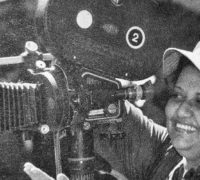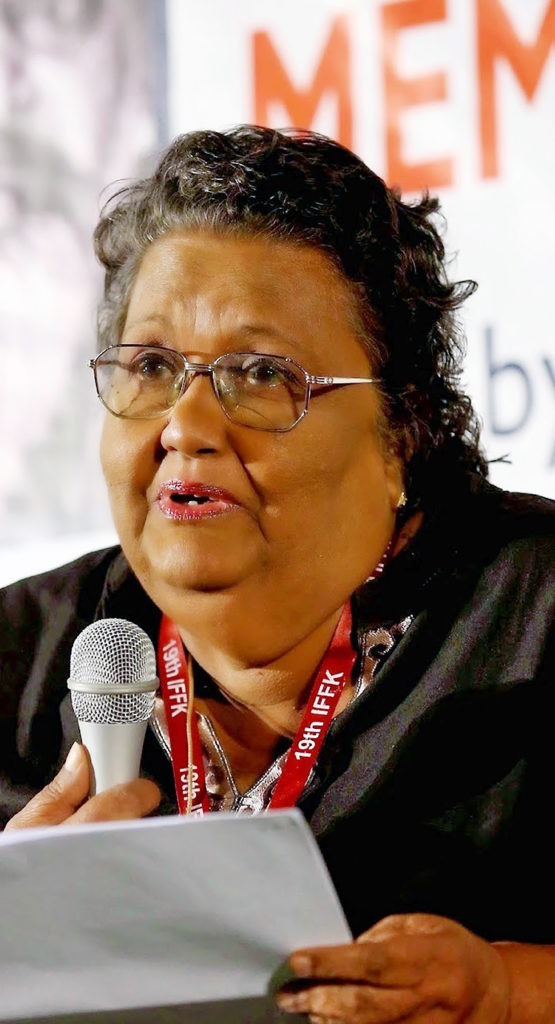
Gentle, suave, reassuring, and calm, Sumitra Peries is the almost perfect embodiment of the women she’s depicted onscreen, from her first film, Gehenu Lamayi, to her lastest, Vaishnavee. ESTEEM caught up with her to delve into her past lives as not just a director, but also ambassador, editor, voyager, and chess player. She is arguably the world’s oldest living active filmmaker, on par with the world’s oldest living filmmaker, who happens to be her husband, Lester.
To start this sketch off, could you recount some of your earliest experiences?
Although we hail from Boralugoda as a family, I was born in and my mother’s side of the family came from Payagala. I was conceived in a dark, vaguely unlit room in our house, referred to as a thimbirigeya. My earliest memories involve my mother, who ran a distillery, and my father, who was far too impractical and kind-hearted to take to running a business at all. (He had studied law, but his heart had always been in the far less practical field of history.) It was actually a kind of bilingual world I was made an heir to; my mother and father could wield both English and Sinhala, and my mother, like most women from her station in life, used to play tennis with the wives of the local doctors and lawyers at the Avissawella Courts. She had a kidney problem.
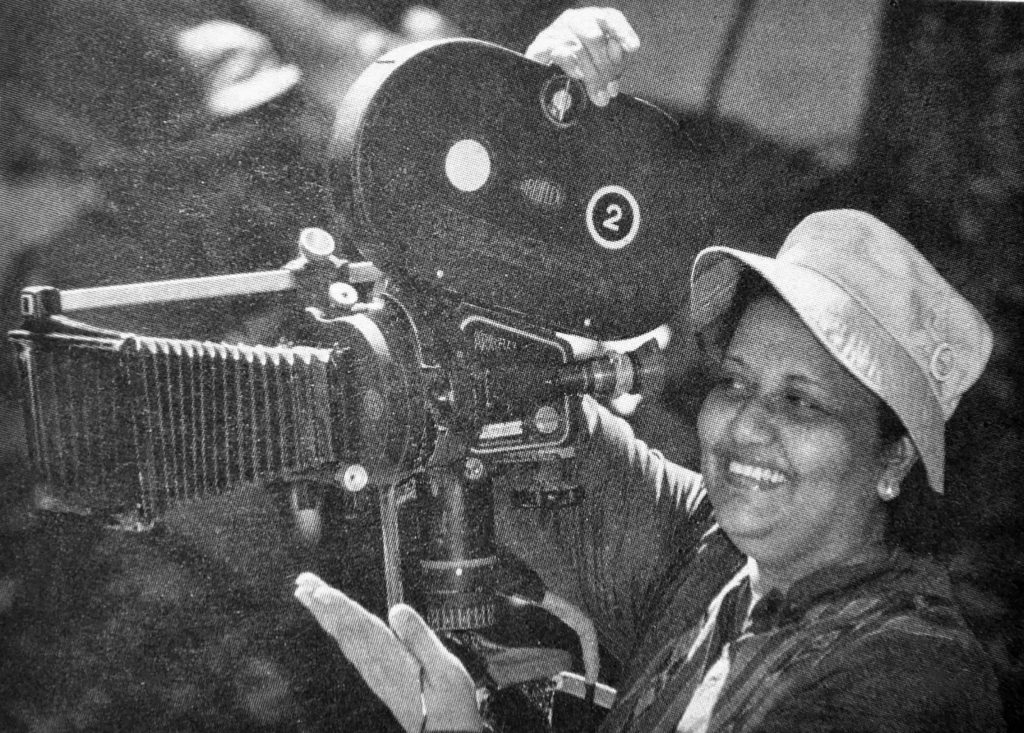
While my elder brother Kuru was sent to the Musaeus College Hostel at the age of five, and my younger sister was sent to the Visakha Vidyalaya Hostel at the age of six or seven, I was kept at home and homeschooled. I would have been six or seven when I saw a school for the first time; not in Colombo, but at St Mary’s College, Avissawella. That was quite a school. It wasn’t an elitist institution, if you know what I mean. We had children of estate plantations and children of rich families all congregating in the class. It had a strict principal who wielded the cane, which more or less was a great leveller. The social milieu we were exposed to in the classroom, moreover, was equivalent to the social milieu we were exposed to at home.
Did this milieu you speak of awaken any political sympathies in you?
Perhaps. Perhaps not. All I remember is that it was a great leveller, as it had been at St Mary’s College. I would have accepted at that early age that there were people of different shades in the world we lived in, of different castes, religions, social backdrops, etc. Going to school was a natural way of coming to terms with a very natural fact of life. I would play with village children, games like kon pittu and sand castles. A little stream passed by our house. I remember trying to catch little thiththayas and fish and all that from there and being chided by my elders for so doing. Then there were what we called bovitiya in the garden, because we had a fairly extensive garden. Rich or poor, haves or have-nots, our friends came with us.
As for my political sympathies, well I was a little girl when I first came across and talked with “Uncle Philip” as we called him: Philip Gunawardena, who would soon be put in jail by the colonial government for his agitation for independence during the Second World War. My father, whose sympathies were more or less aligned with his, had contested the area in 1931 (even before I was born) against the incumbent, Forrester Obeyesekere, missing what would have been a promising journey to the State Council by a mere 300 votes. Uncle Philip and even N. M. Perera would bring busloads of people to our house, and my family would serve them. It’s ridiculous to think that such childhood experiences can substantively affect one’s political inclinations as an adult, but they would have had a say for sure.
I wasn’t exactly brought up in an elitist background. We didn’t have the kind of luxuries people from our backdrop usually had in Colombo: no electricity, no drainage, and no bidet showers. We lived in a basic, almost primeval, home. It had a locked up well and a toilet outside, which we used to wash with buckets since we didn’t have a proper running water system either. So no, we didn’t live in a very well brought up, fashionable family; we lived a most ordinary life in Payagala.
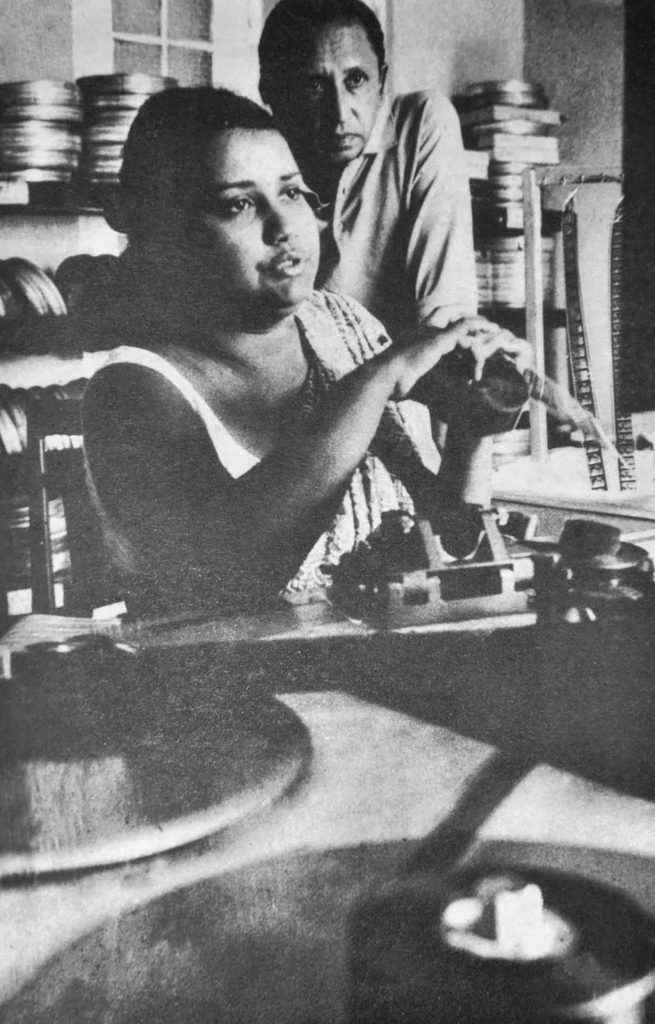
We know what happens next, but could you offer a summary?
Well one thing led to another and I ended up at Visakha Vidyalaya. I was quite a headstrong girl there; the teachers at one point said, “You can’t remember your Buddhist gathas and sermons, but if we asked you to recite LSSP propaganda, you’d easily do so!” In fact my years at Visakha deserve an entire chapter, if not story, to themselves, particularly since it was there that I was “educated”, so to speak, before being let loose in the world. From Visakha, even before I completed my tenure as a student there, I went to Aquinas College to do my London A Levels.
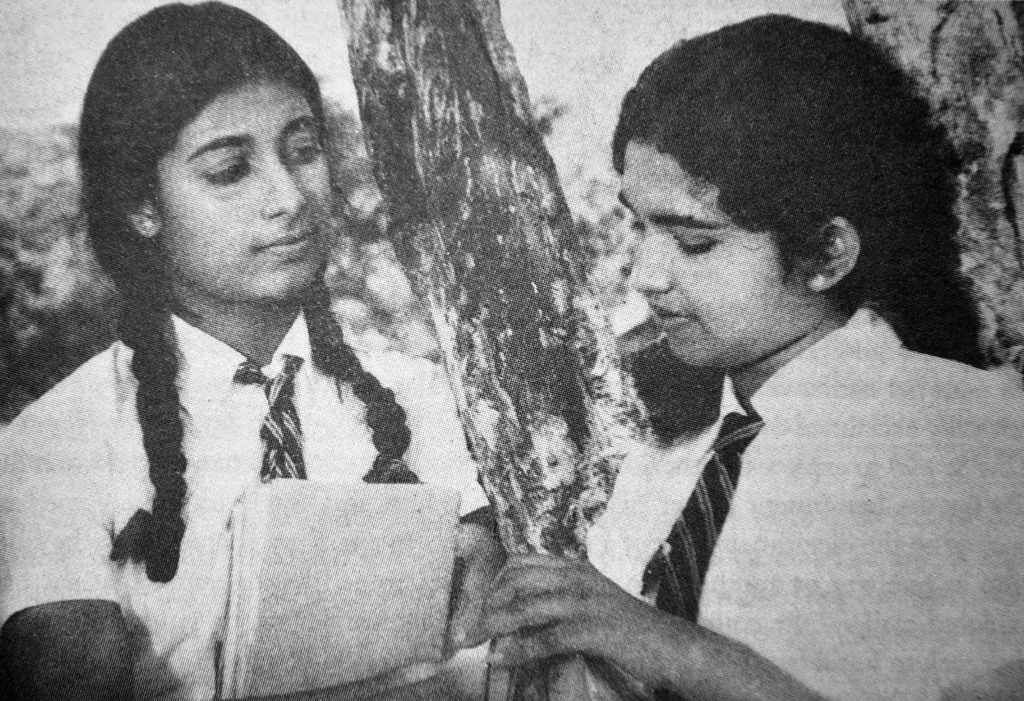
It was around that point that my mother passed away. My brother Kuru, who was so devastated by it, left for France. Just like that. I followed him on a P&O Liner: an arduous but enjoyable journey, to be sure. When I left for France, and later when I returned, aboard that Liner, I would resort to playing chess with my friends.
I found Kuru with a couple of his friends, French and American. We had quite a time in Europe, enough to fill a Hollywood scrapbook. Again, one thing led to another and soon enough I was boarded in an apartment with a nice but rather dominating old lady and studying French at the University of Lausanne in Switzerland.
From Switzerland I left to Paris; in Paris I was taken to the Ambassador, Vernon Mendis, and his wife, Paddy, the latter of whom was a relative of mine; in Paris I also met Lester, my future husband, who happened to be a relative of Vernon; and from Paris, after seeing his Rekava and understanding that the cinema was my field, I left to London, where for some time I studied subtitling under May Harris in Brixton, and where I met Lindsay Anderson, who would become a family friend.
How did your other roles in life unfold thereafter?
I started out as an Assistant Director to Lester, whom I hadn’t married at the time, aboard Sandeshaya. Afterwards I got to be his Editor, from Gamperaliya to Ahasin Polawata and spanning some 15 years. I came from a technical background. Then I moved on to directing, as we all know, with Gehenu Lamayi. Then I moved into Paris as an Ambassador. Later I became a lecturer, though I don’t lecture anymore.
Lester and I are quite close. Always were, always will be. It was a meeting of two intricate sensibilities, from that chance encounter in Paris. He was the person who advised me to go to London; in a way, his destiny has been mine as well. So as far as my story goes, and my other roles, they all amount to one man, one destiny.
Written by Uditha Devapriya
